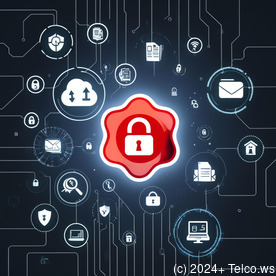
Comprehensive Guide to Cloud Security Controls
Introduction
In today's digital age, businesses and individuals alike are moving their operations to the cloud. Cloud computing offers unparalleled convenience, scalability, and cost-effectiveness. However, the rapid adoption of cloud technology brings with it a host of security challenges. This article delves into cloud security controls, their importance, different types, best practices, key providers, and finally, a special offer for readers looking to enhance their cloud security posture.




Understanding Cloud Security
What is Cloud Security?
Cloud security refers to a set of policies, controls, procedures, and technologies that work in unison to protect cloud-based systems and data. The goal is to address both external and internal threats. Security measures target various components, including data, applications, and infrastructures hosted in the cloud.
Importance of Cloud Security Controls
The significance of cloud security controls cannot be overstated. They serve as the frontline defense against potential data breaches, loss of sensitive information, and compliance violations. The consequences of inadequate cloud security can be severe, including:
- Data Breaches: The exposure of sensitive personal and financial information can lead to significant reputational damage and legal ramifications.
- Financial Loss: Businesses may incur heavy costs in the form of fines, legal fees, and the loss of business.
- Operational Disruption: Cyberattacks can lead to downtime and a halt in business operations, impacting productivity and revenue.




Types of Cloud Security Controls
Cloud security controls can be categorized into several types:
1. Preventative Controls
These controls are designed to prevent security incidents from occurring. They include:
- Access Management: This involves assigning user roles and permissions to ensure only authorized individuals have access to sensitive data.
- Multi-factor Authentication (MFA): MFA adds an additional layer of security by requiring multiple forms of verification before granting access.
- Encryption: Data encryption both in transit and at rest helps protect sensitive information from unauthorized access.
2. Detective Controls
Detective controls identify and alert stakeholders about potential security events. Examples include:
- Intrusion Detection Systems (IDS): These systems monitor network traffic for suspicious activity.
- Security Information and Event Management (SIEM): SIEM solutions aggregate logs and provide real-time analysis of security alerts.
3. Corrective Controls
Corrective controls are implemented after a security incident has occurred. They aim to restore affected systems and mitigate damage. This category includes:
- Backup and Recovery Solutions: Regular backups enable organizations to restore systems and data after a breach or data loss incident.
- Patch Management: Timely updates and patches for software help fix vulnerabilities that could be exploited by attackers.
4. Compensating Controls
Compensating controls serve as an alternative to primary controls that may not be feasible due to certain constraints. They often include increased monitoring and auditing measures.




Best Practices for Implementing Cloud Security Controls
To ensure effective implementation of cloud security controls, organizations should consider the following best practices:
- Risk Assessment: Conduct a comprehensive risk assessment to identify potential vulnerabilities in your cloud infrastructure. Understanding your unique risk landscape allows for tailored security measures.
- Compliance and Regulatory Guidelines: Stay abreast of industry-specific compliance requirements (such as GDPR, HIPAA, and PCI-DSS) and ensure that your cloud security controls align with these regulations.
- Vendor Management: When engaging with cloud service providers (CSPs), scrutinize their security protocols. Ensure that they implement robust security controls and have a transparent security policy.
- Training and Awareness: Conduct regular training programs for employees to increase awareness about security threats and best practices for utilizing cloud resources securely.
- Regular Auditing and Monitoring: Implement continuous monitoring and conduct periodic audits of your cloud environment to identify security gaps and ensure compliance with corporate security policies.




Key Providers of Cloud Security Solutions
Several reputable companies specialize in cloud security solutions, including:
1. Amazon Web Services (AWS)
AWS offers a range of security features, including IAM (Identity and Access Management), as well as compliance certifications for various industries.
2. Microsoft Azure
Azure prioritizes customer security with tools such as Azure Security Center, which provides advanced threat protection and security management.
3. Google Cloud Platform (GCP)
GCP provides robust security measures like data encryption, IAM, and a Security Command Center for threat detection and management.
4. Palo Alto Networks
Leveraging advanced machine learning, Palo Alto Networks provides comprehensive cloud security solutions that protect applications and data in real-time.
5. Zscaler
As a cloud-native platform, Zscaler offers strong security measures that protect users and data independent of device or location.




Conclusion: Strengthening Your Cloud Security Posture
In an era where data breaches and cyberattacks are alarmingly common, the implementation of robust cloud security controls is more crucial than ever. By employing preventative, detective, corrective, and compensating controls, organizations can significantly reduce their risk exposure.
Exclusive Offer
To help you bolster your cloud security strategy, we are excited to extend a special offer for our readers. Partnering with leading experts in the field, we offer a comprehensive cloud security audit and setup tailored to your organization’s needs for only $799 USD.
Get Started Today!
Interested in buying? As stated, the price for our Comprehensive Cloud Security Audit is $799 USD. Please proceed to our Checkout Gateway and use our Payment Processor to pay the indicated amount of $799 USD in favor of our Company, following the instructions. Once you have paid, please contact us via email, phone, or site with the payment receipt and your details to arrange the Cloud Security Audit Service. Thank you for your interest!
By investing in security today, you ensure your peace of mind for tomorrow. Protect your cloud assets and safeguard your business from potential threats with expert insights and proven controls!
